About eating
Q: My baby is not eating, what can I do?
A: Understand your child. Is your child a big eater or not? What do they do before or after the meal? What kind of food do they like?
➢ No stress in the house. If there is a lot of stress in the house during the meal time, the baby will feel that.
➢ The environment is very important. What kind of table is the child sitting by? Have you set up the kitchen or the living room or the chair for the child?
➢ The child should have choices. Either they can eat with their hands or use a spoon or chopsticks, if they can.
➢ Always set out a small portion first. If you give them a big bowl of noodles, the child might think they can’t finish it.
➢ Always help the child one to one. If many people are telling the child to eat, the child might not want to eat. It's also really important that the person who is feeding the child is also eating, because you are setting the example.
➢ Try to make the meal a very enjoyable time. Better short and happy rather than long and difficult.
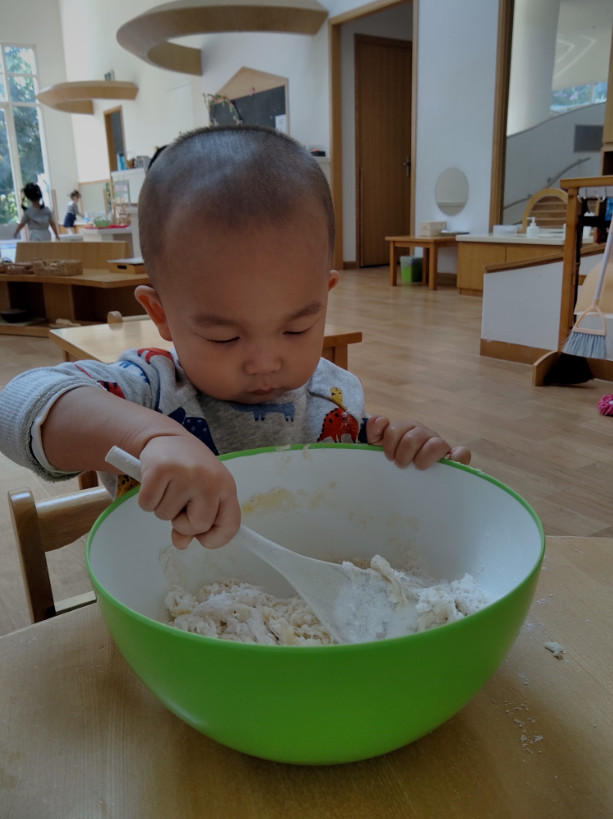
(Photo provided to Newsgd.com)
Q: My baby only eats while playing with my phone, how can I help him quit that?
A: Be patient. It will take time to change a habit.
➢ Change the habit little by little. Ask the child to eat a little bit, and you show him/her something and turn it off. Ask him/her to eat a little bit more and you show him/her again. The aim is that they can eat more, and you show less. Hopefully they will watch their cartoon or movie before or after meal time.
➢ Adults are a role model. No one, no matter the age, should play with any phone or tablets during meal time.
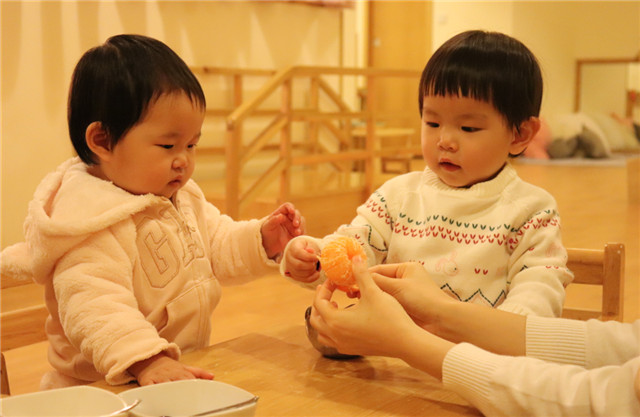
(Photo provided to Newsgd.com)
About language
Q: How can I guide a 2 years old baby who still does not speak to start talking?
A: From birth to three years old, children have two very important areas for development: movement and language. Sometimes movement comes first, sometimes language, so we need to observe and give positive feedback.
➢ Be careful, that the adult isn’t talking for the child. Adults need to think about their language and give time to the child to respond. If the adults are talking too much, and the child gets what they want without talking, they will think that they don’t need to talk.
➢ The child needs to learn that words have power. If they want something, ask them to say it, at least some syllables, only then give them the thing. If they don’t say it, don’t give it to them. You can also play language games with the children to help them develop their skills.
➢ Many languages can be confusing. If there are many languages in the home and you mix up languages, the child can be confused. It’s really important that one person sticks to the same language all the time.
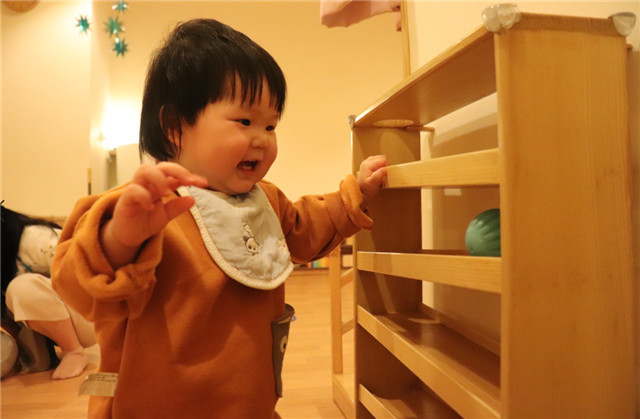
(Photo provided to Newsgd.com)
Q: When is the best time for my baby to learn a foreign language?
A: Children can start learning a foreign language anytime. It’s not about teaching, but exposing the child to this environment. We want the child to like this language. So it has to be fun, it has to be over a long period, otherwise the child will not learn the language.
➢ No switching languages. The same person should always speak the same language as much as possible. If you need to switch, you need to tell the child. It is possible for the child to learn many languages at the same time, as long as that each language is spoken by the same person/people and that they are exposed to the language long enough each week.
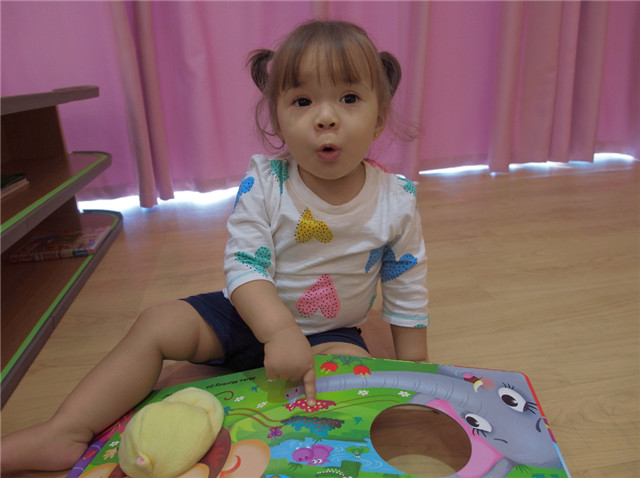
(Photo provided to Newsgd.com)
About movement
Q: What should I do if my baby often hits his/her little friends with hands?
A: To communicate or get the attention. Children might not know what hitting really means. If their language is not so developed, the child will use more their hands to communicate or get the attention.
➢ Remind the children what they can do with their hands. Ask what they want, tell them “we need to talk, we can shake, stroke and wave with our hands, but we don’t hit.”
➢ You are a role model. So if they see you or anyone hitting something or someone, they feel this is ok.
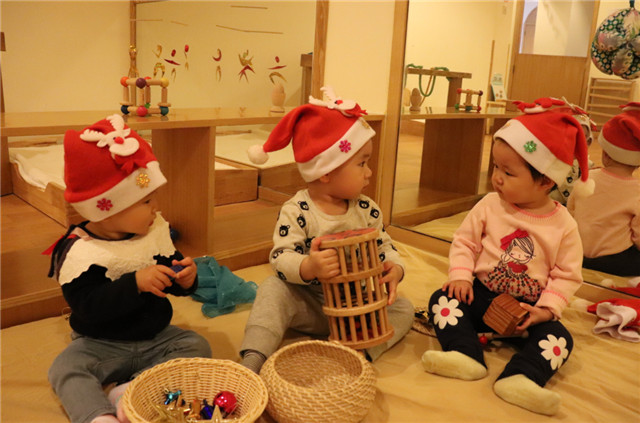
(Photo provided to Newsgd.com)
Q: How can I teach my baby to explore his/her surroundings in a safe way?
A: Your language is very important. If you keep saying "don't", the child will mostly do the action. Instead of saying ‘no’ or ‘don’t’, you should try affirmative expression.
For example, if you say "don't touch" the child will touch. So instead, you can say "put your hands on the table". If the child is climbing, then you say "feet on the floor please". If the child is cutting banana and starts playing with the knife then you can say " the knife is for cutting, either you cut or we put it away", then you show them again how to cut. If the child goes on playing with the knife, then you tidy up straight away. Rules must be very clear.
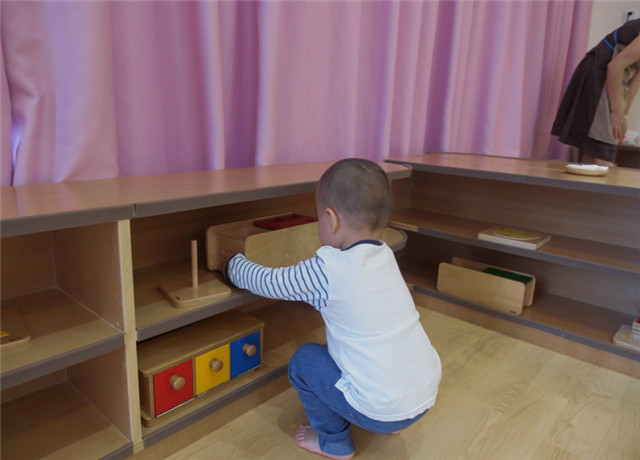
(Photo provided to Newsgd.com)
About second child
Q: How can we comfort and reassure the 'clingy' elder child after we had our second baby?
A: Say hello to the older child first, not the baby. When you go back home, or someone comes to the house, the first person to go to and say hello is the older child, not the baby. Otherwise the older child will feel “you forgot me, you don’t care about me anymore”.
➢ Mom needs to spend some quality time one to one with the older child. Tell the baby in front of the older child that you are going to play with the older child.
➢ Get the older child involved, tell him/her you would like them to help. “Let’s do this together. Let's help your younger sister/brother. You are so strong. You can do so many things but she/he cannot yet.” Remind the older child that mommy has to spend some time with their baby sibling because they cannot do very much.

(Photo provided to Newsgd.com)
Q: How can two children get along well with each other?
A: It's okay if they don't get along, because maybe their interests are different. And usually the younger one will always want to take what the older one has.
➢ Find a common interest and do something together. For example, go water the plants, everybody has a watering can to water the plants, for a very short period of time. If it's too long, they may fight.
➢ Little by little, they will learn how to deal with each other. If there is a fight, you can separate them for a while. The most important thing is to give words to the children and explain the situation. Listen to what both children have to say and give them solutions on how to solve their conflict. We have to show them how words can help and are better than using our fists when we don't agree.
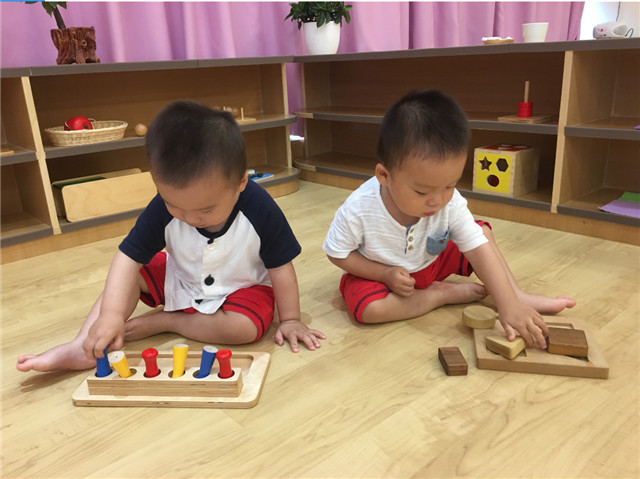
(Photo provided to Newsgd.com)
About being dilatory
Q: What can we do with a child who is dilatory in everything?
A: We have to help this child to build up self-confidence. The first thing to do is to do practical life activities like cleaning, sweeping, watering plants and scrubbing. We should not push the child to do something they feel uncomfortable and instead work on the strengths and little by little go back to the weaknesses. Always arrange short tasks, so the child feels they can complete an activity. When you need to tidy up something, the child should always put away the last piece. In this way they are completing the cycle and not the adult.
➢ Try to introduce one challenge at a time, and environment is also very helpful. The environment is also a form of ‘role model’, if you have external order, it will bring internal order and help the child to feel secure and know where things are. When you introduce something new in an activity, make sure there is at least one thing the child already knows how to do.
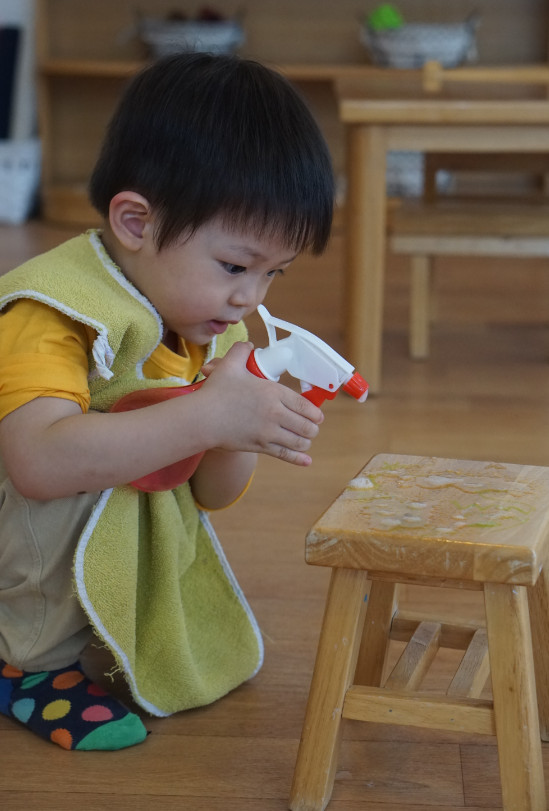
(Photo provided to Newsgd.com)
The above advice was given to us by Leticia de Lassus, an early childhood educator who has been working in Guangzhou as the head of JJB International Montessori AMI Centres and teaching director with over 15 years' experience working with Montessori Pedagogy in many different countries.
JJB Group, headquartered in Guangzhou, provides high quality early education services for children in the Guangdong-Hong Kong-Macao Greater Bay Area. Its Ersha centre has been included on the list of interior design award of the 2019 Dezeen Awards.
Author: Monica Liu
Editors: Simon Haywood & Keane Wong




